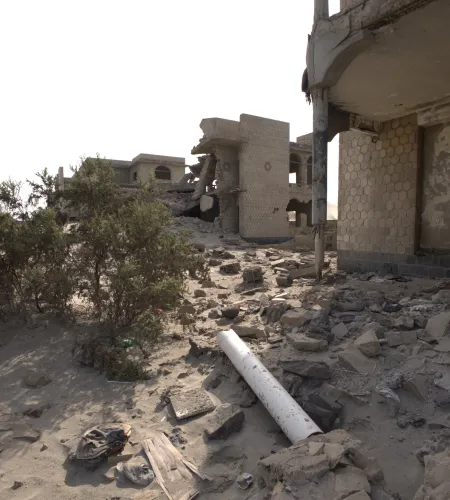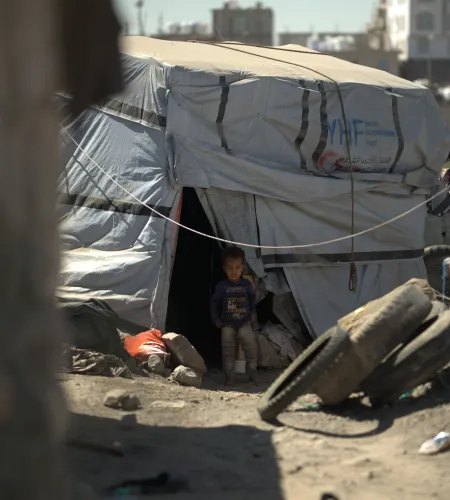Life in poverty
The camp they live in now has barely any facilities. Basstam tries to work and sometimes makes a few thousand riyals a day, but it’s not nearly enough. “We eat one meal a day at most. Sometimes, we can’t get anything.”
Conditions are dire. They sleep under torn tarpaulins, with no real protection from cold, heat or rain. Basstam: “We have no means of support, no food, no mattresses, and no proper shelter.” Even though life in the camp is hard, returning to Al Hudaydah is not an option. Basstam’s house is gone, and the region remains unsafe. “The conflict destroyed my home and my livelihood. Our financial situation has collapsed, and now we can’t go back home or return to anything.”



